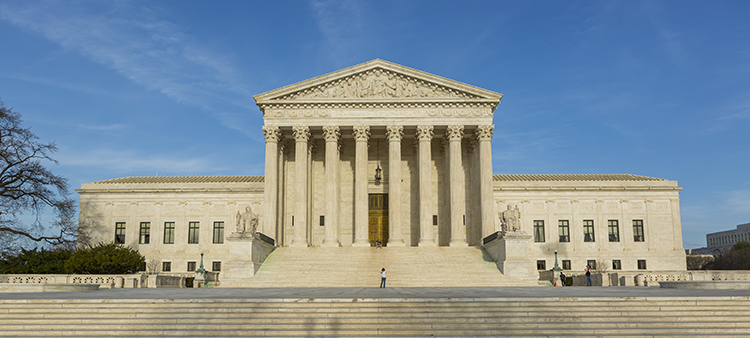Precedents
Feb. 20, 1967: Muhammad Ali's appeal rejected by draft board

Photo of Muhammad Ali by AP Photo
As Cassius Marcellus Clay Jr., a black athlete from Louisville, Kentucky, he had won an Olympic gold medal in 1960, capping an illustrious amateur career before turning professional. After his defeat of Sonny Liston, a vulgar ex-convict with ties to organized crime, Clay emerged as both heavyweight champion and as Muhammad Ali—a follower of Elijah Muhammad and the Nation of Islam.
In 1964, Clay had been deemed unqualified for the service because of his lack of proficiency in reading and writing. But in February 1966, as the Vietnam War gained momentum, the standards were changed and Clay—now Ali—
was reclassified as eligible for the draft. Ali applied for reclassification as a conscientious objector, stating publicly that he would refuse induction as a matter of religious principle. He argued that Islam recognized only "just" wars, and that the Vietnam War was not just.
Turned down by his draft board, his case was referred to the Justice Department for an investigation by the FBI. Testifying before Lawrence Grauman, a federal hearing officer, Ali stated: "The Holy Quran do teach us that we do not take part of—in any part of—war unless declared by Allah himself." Grauman, a Kentucky circuit judge for 25 years, concluded that Ali was sincere in his beliefs and recommended that his claim be sustained.
But the Justice Department, acting on its own, advised the draft appeals board in Kentucky to deny Ali's claim. The DOJ argued that his conscientious objection was selective, and that the Nation of Islam's resistance to the draft was based on politics and race rather than religious belief. On Feb. 20, 1967, with a 4-0 vote, the Kentucky appeals board rejected his petition without stating a reason.
Having moved to Houston, Ali was ordered to appear there for induction. He did so on April 28, 1967, accompanied by his lawyers. After he refused three times to step forward and accept induction, he was arrested and stripped of his heavyweight title. In June, a Houston jury convicted him after 21 minutes of deliberation; he was sentenced to five years in prison, fined the maximum penalty of $10,000 and banned from boxing.
In June 1971, the Supreme Court decided in Clay v. U.S. that the Justice Department had erred in its letter to the Kentucky draft board, and it reversed Ali's conviction. By then, Ali had resumed boxing and his stance against an unpopular war attained popular support that would not have been possible just four years before.



